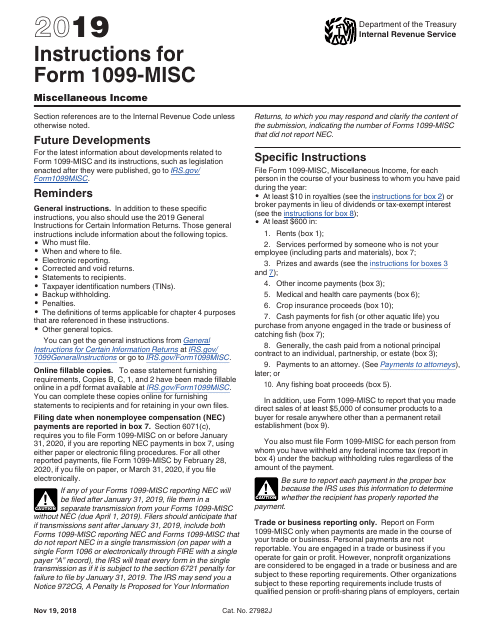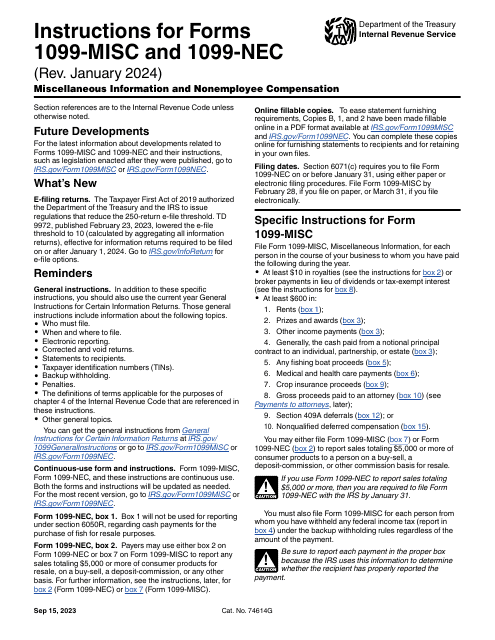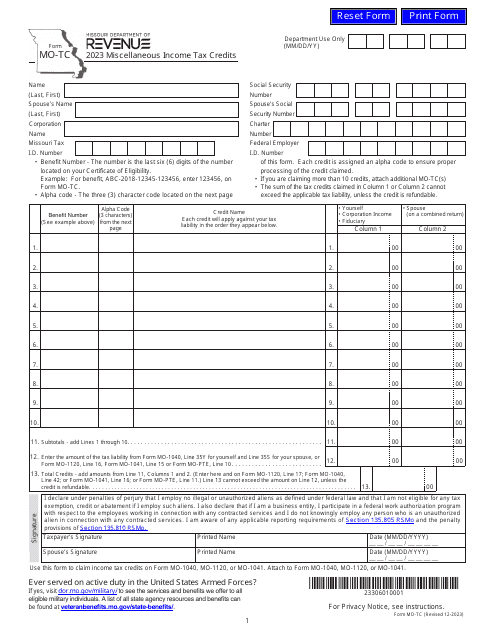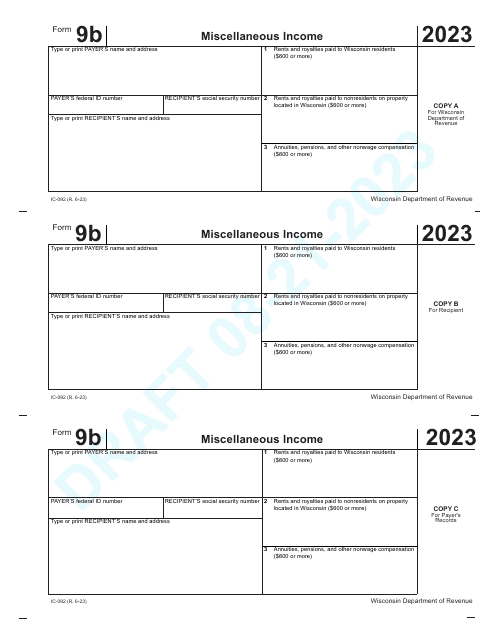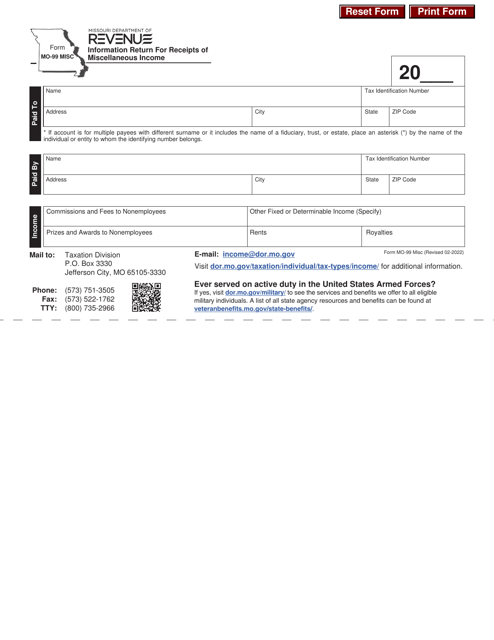Miscellaneous Income Templates
Are you unsure about how to report your miscellaneous income? Look no further! Our comprehensive collection of documents related to miscellaneous income will provide you with all the necessary information and forms you need.
Whether you're an individual or a business, reporting miscellaneous income can be a complex process. Our documents cover a wide range of scenarios and provide step-by-step instructions to help you accurately report your miscellaneous income.
One of the key documents in this collection is the IRS Form 1099-MISC Miscellaneous Income. This form is used by businesses and individuals to report payments received for services rendered, rent, royalties, and more. Our detailed instructions for IRS Form 1099-MISC will guide you through the reporting process and ensure you don't overlook any important information.
If you're a resident of Missouri, you'll find additional documents tailored to your state's requirements. Form MO-99 MISC Information Return for Receipts of Miscellaneous Income is specifically designed for reporting miscellaneous income in Missouri. Additionally, Form MO-TC Miscellaneous Income Tax Credits can help you claim any applicable tax credits related to your miscellaneous income.
Wisconsin residents can benefit from Form 9B (IC-092) Miscellaneous Income. This document provides a comprehensive overview of reporting miscellaneous income in Wisconsin, including any specific requirements or credits available.
With our collection of documents related to miscellaneous income, you can rest assured that you have all the resources you need to accurately report your miscellaneous income and stay in compliance with applicable tax laws. Don't let the complexity of reporting miscellaneous income be a burden - let our documents guide you through the process smoothly and efficiently.
Documents:
13
This is a fiscal document used by organizations that made payments to individuals and companies that were not treated as employees over the course of the tax year.
This form is used for reporting miscellaneous income received, such as freelance work or rental income. It provides instructions on how to fill out Form 1099-MISC accurately.


